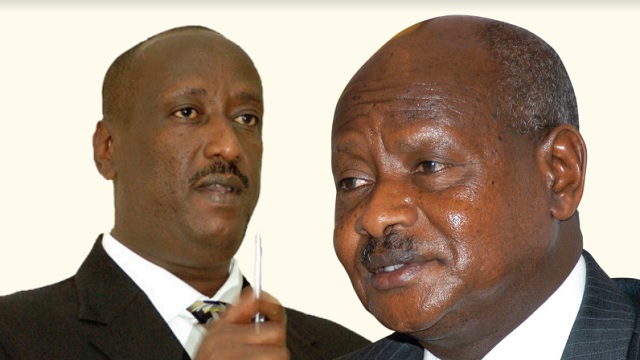
Museveni is the problem, insiders say
Kampala, Uganda | HAGGAI MATSIKO | Efforts by an undercover team to study areas of wastage in government departments with a view to make public service delivery leaner, less costly, and more effective fear running into trouble from an unlikely source; President Yoweri Museveni.
This is after several heads of government ministries, departments, and agencies (MDAs) named among the most wasteful dismissed the findings and recommendations of the undercover team led by President Museveni’s brother and confidante, Gen. Caleb Akandwanaho aka Salim Saleh.
According to government documents that The Independent has seen, all government MDAs and projects named among the most wasteful should have their contracts terminated by June 30, 2018 in line with a government directive under the Government Rationalisation Plan (GRP).
According to the documents, the Rationalisation Plan is to be implemented over three years in three phases. Phase One, lasting six months to June 30, 2018, is the most critical and will involve six main activities. Activities include cabinet approval, which has been done and President Museveni setting up a Technical Adhoc Committee to oversee the implementation of the rationalization, which is pending and seen as the main stumbling block.
Other activities include abolition of agencies with expired mandates and implementation of new salary structures.
Makerere University Kampala, Uganda Revenue Authority, Kampala Capital City Authority, and Uganda National Roads Authority (UNRA) were named among the centres of wasteful government expenditure.
Other wastage, experts say, manifests in how roles are duplicated. For instance on promoting investment alone, Uganda has the Uganda Investment Authority (UIA), the Exports Promotions Board, the Uganda Free Zones Authority and the Uganda Tourism Board. Proponents of the Saleh proposals say one entity can have departments that do what all these entities do and thereby save the taxpayer a lot of funds that goes into cars, fuel, salaries and allowances of hundreds of officials employed by all these entities that duplicate each other’s work.
The same applies, they say, to registration services. Here, Uganda has the Electoral Commission, the Uganda Registration Services Bureau (URSB), the National Identification and Registration Authority (NIRA) and the Directorate of Citizenship and Immigration under the ministry of internal affairs.
But a head of one of the authorities who agreed to speak to The Independent only on condition of anonymity noted that the problem of wasteful government expenditures was not with the existing institutions but with the government’s tendency to “mix up its priorities”. The head said the government also either lacks the capacity or is not interested in monitoring the implementation of established plans.
“It is not because of these mushrooming agencies that we have failed to follow our national development plans,” the official said.
Even officials who support Gen. Saleh’s findings and recommendations and also spoke on condition of anonymity expressed fears the proposals would fail. They said President Museveni has not showed too much interest in reforming public service over the years.
“The dossier’s good proposals will die a natural death,” one of them said.
It should be remembered that in 2002, President Yoweri Museveni appointed a committee of experts to study the problem of the high cost of public administration. The committee wrote a report on how Public Administration budgeting could be made more effective.
“There has been a proliferation of expenditures on activities that escape the full rigors of discipline through the annual budgeting exercise,” the report noted, “Whereas spending on the core civil service has been restrained, there has been an undisciplined growth in spending on commissions, semi-autonomous agencies and political appointments.
At the time, by 2000/01, Public Administration accounted for 20.2 percent of the total budget outturn (excluding donor aid).
Months after Museveni’s directive, on May 21, 2002, then Finance Minister, Gerald Sendaula, at a Public Expenditure Review workshop in Kampala also called for stronger controls over the expenditures of Public Administration.
“The Public Administration sector is currently the second largest sector in the government budget,” said the late Chris Kasami, then-Secretary to the Treasury to an audience of donors, private sector executives and government officials on May 21 2002.
 The Independent Uganda: You get the Truth we Pay the Price
The Independent Uganda: You get the Truth we Pay the Price




Good analysis , I hope this good observations are taken into consideration by all stakeholders in public administration sections !